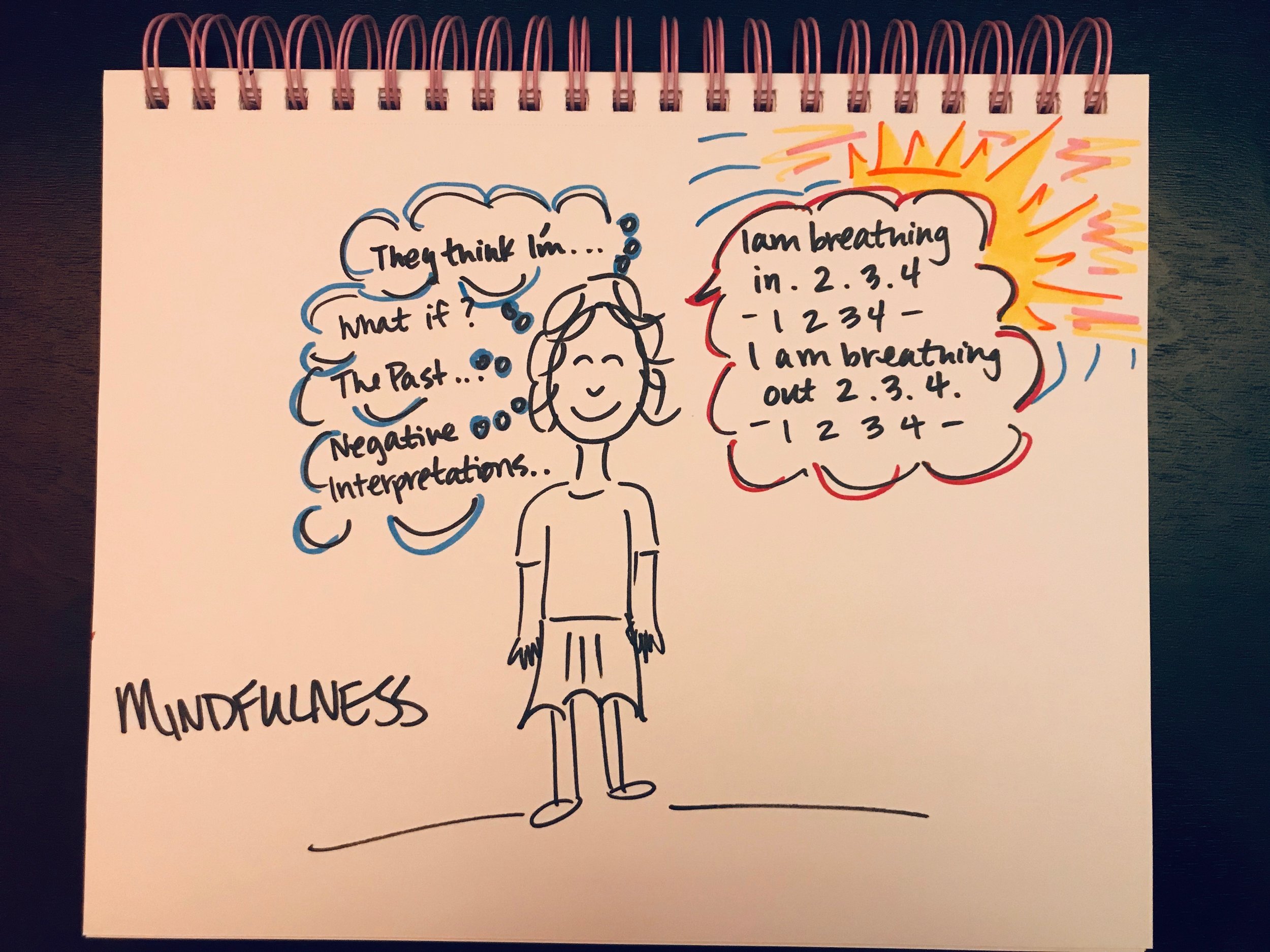Cognitive Behavioral Therapy
The thoughts come rapid fire, you can’t catch them, so how could you possibly catch them, change or reframe them, and notice your emotional shift upon changing your thought process? This is what Cognitive Behavioral Therapy invites you to do. Although this requires practice, time, and a strong willpower to change your thoughts and rewire your brain, it can be very effective. Start with small steps. Recognize a pattern. Is your brain jumping to conclusions, like you know what’s going to happen in the future or you know what someone is thinking? Or are you catastrophizing, thinking the worst is going to happen? What about making a mountain out of a molehill? Are you blowing things out of proportion? Do you say things in your mind like, “should” (people should know better), “never” (that never happens, she never does that), “always” (that always happens, he always does that)? Notice these patterns, and see if you can put an optimistic twist on your thought, or reframe it with objective facts. Practice these optimistic or reframing twists like a script. This script is for the play of your life and how you want the protagonist to complete her hero’s journey.
Acceptance Commitment Therapy
There are other ways too. You can recognize that your thoughts come rapid fire because you grew up in a culture of fear and this led to constantly being on edge and anxious, scanning the room, and getting ready to run or fight. Your thoughts flood you to keep you informed. So you could gain some perspective on this. You might decide to zoom out, recognize this pattern, and step into your observing self. This is a term from Acceptance Commitment Therapy. By stepping into this zoomed out, observing self, position, you then can choose how to respond to those rapid fire thoughts. You might say, “there goes my brain again, okay, what was I doing and what do I want to do despite these thoughts?” Acceptance Commitment Therapy invites you to choose an action despite your brain based in what you value, what’s important to you.
Mindfulness
Perhaps you just want to slow the thoughts down, after all, if you could slow them down, then you could think clearly and make a choice based on logic. This requires grounding and mindfulness. Mindfulness is a primary tenet of most therapy ideologies, and for good reason. Being able to be present in the moment slows you down, but it requires you to be grounded and in your body. It also, takes some work. Over time it is incredibly rewarding. Here is a mindfulness hack to get you started: square breathing (inhale for 4, hold for 4, exhale for 4, rest for 4; repeat for a total of 4 times, then breath comfortably).


